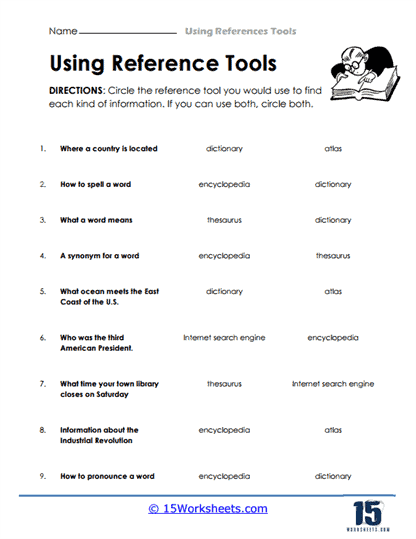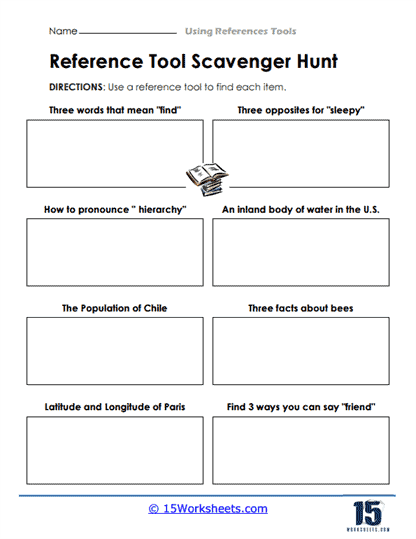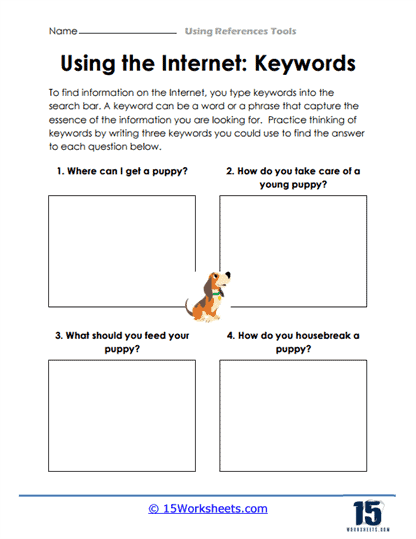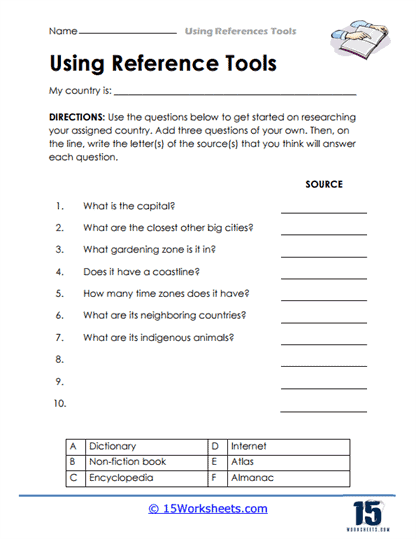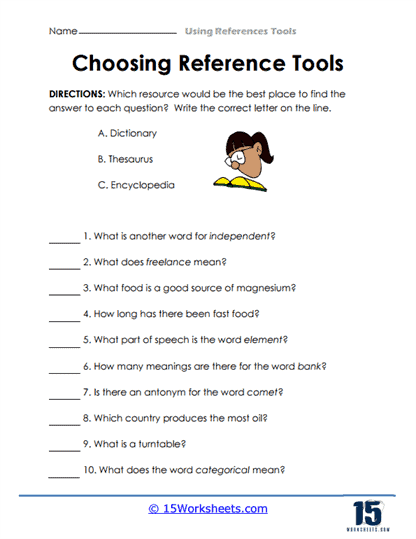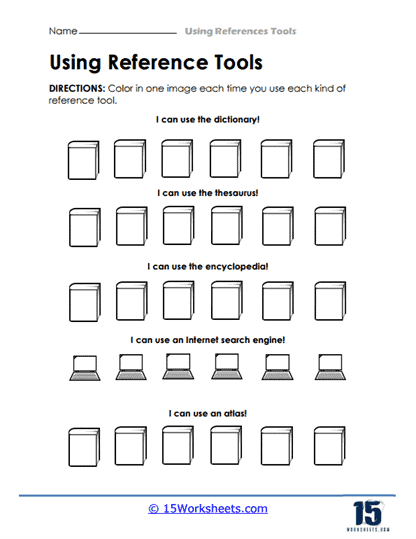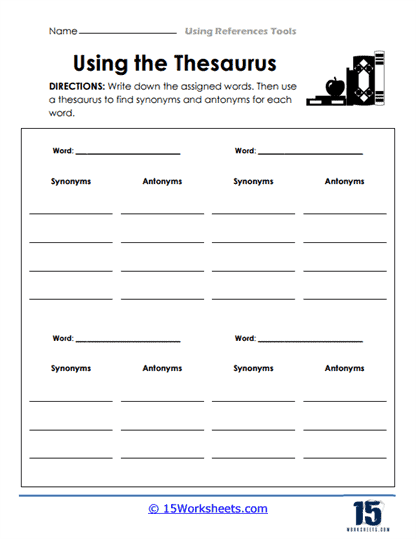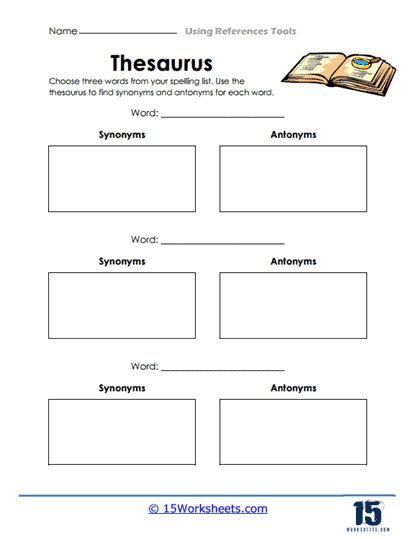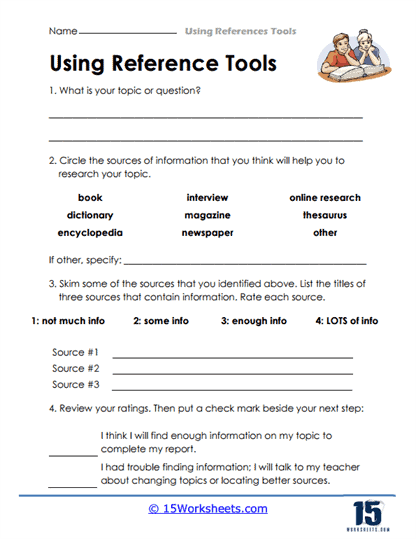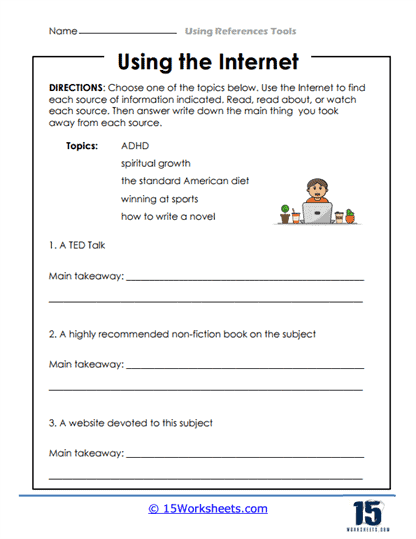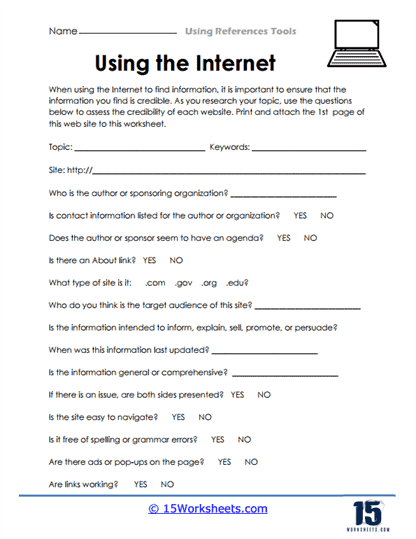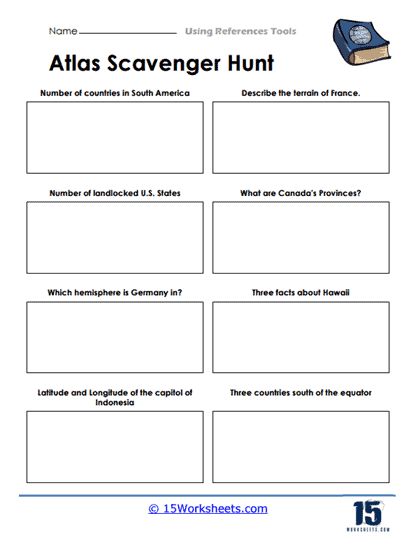Using References Worksheets
All About These 15 Worksheets
This series of 15 worksheets on Using References is designed to help students navigate and effectively utilize various reference materials in their academic work. References play a crucial role in providing accurate and reliable information, supporting arguments, and giving credit to original sources. These worksheets cover a range of topics related to using references, including understanding different types of references and incorporating references into writing. By engaging with these worksheets, students can enhance their research skills, improve information literacy, and develop proper referencing practices. Through these worksheets, students will:
- Familiarize themselves with the characteristics and purpose of each reference type, helping them understand where to find relevant and reliable information;
- Access and search scholarly databases, understanding search filters and advanced features, and critically evaluating the sources retrieved from these databases;
- And master using a variety of reference tools such as the dictionary, internet, thesaurus, encyclopedia, and atlas.
This series of worksheets on Using References equips students with essential skills for effectively utilizing references in their academic work. By engaging with these worksheets, they can enhance their research skills, develop information literacy, and cultivate proper referencing practices.
Understanding how to evaluate, cite, and incorporate references not only strengthens students’ arguments but also demonstrates their ability to engage with scholarly work responsibly and ethically. Overall, these worksheets provide students with practical guidance and opportunities to practice these skills, empowering them to become skilled researchers and critical thinkers in their academic pursuits.
Why Do We Use References In Our Writing?
We use references in our writing for several important reasons:
Credibility and Accuracy
Providing references to reliable sources strengthens your arguments and demonstrates that you have researched and based your claims on accurate and trustworthy information. This increases the credibility of your writing and makes it more persuasive to your readers.
Acknowledging Others’ Work
Referencing is a way to give proper credit to the authors and researchers whose work you have used to support your ideas. This practice acknowledges their contributions to the field and respects intellectual property rights.
Avoiding Plagiarism
Plagiarism, which is the act of presenting someone else’s work as your own, is considered a serious academic and professional offense. By providing references, you clearly indicate which ideas and information come from other sources, helping you avoid plagiarism and maintain your integrity as a writer.
Enabling Further Research
Including references in your writing allows your readers to track down the sources you have used and explore them in more detail if they wish. This helps promote further research, discussion, and understanding of the topic at hand.
Demonstrating Your Knowledge
Referencing a wide range of sources shows that you have a comprehensive understanding of the subject matter and are aware of the current state of research in the field. This can enhance your reputation as a knowledgeable and well-informed writer.
Supporting Claims and Providing Evidence
References provide concrete evidence to support your arguments and claims. They help demonstrate that your assertions are grounded in fact and research, making your writing more convincing and authoritative.
In summary, using references in your writing helps establish credibility, acknowledge the work of others, avoid plagiarism, enable further research, demonstrate your knowledge, and support your claims with evidence. Proper referencing is a key aspect of academic and professional writing that should be practiced consistently to maintain high standards of integrity and quality.

